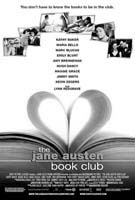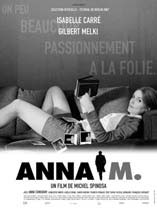Reviews
Films
The Jane Austen Book Club

Directed by Robin Swicord, starring Maria Bello, Emily Blunt, Kathy Baker, Amy Brenneman, Jimmy Smits and Hugh Dancy
Literary matters less crass lie at the center of writer-director Robin Swicord's The Jane Austen Book Club, a dramatic comedy in which middle-class Californian women form a reading group to study the novels of Jane Austen over a period of some six months. The object is to console one friend who's been deserted by her husband and another who's grieving over the loss of a pet dog. As there are six novels to be covered over six months, they need a sixth member and by chance this turns out to be a wealthy young Silicon Valley entrepreneur (Britain's Hugh Dancy), a sci-fi fan who's never read a word of Austen.
It's Steel Magnolias at an Open University summer school and everything that happens in this highly contrived, self-consciously literate, self-congratulatory elitist work echoes, refers to or is inspired by Austen. It will turn some people off, but it was rather enjoyable and the ensemble performances were particularly good. The ultimate message seems to be that reading is the next best thing to sex, as well as a stimulating prelude to it.
Weirdsville
Directed by Allan Moyle, starring Scott Speedman and Taryn Manning.
Briefly, two curiosities. The Canadian black comedy Weirdsville takes place on a snowy winter night in a small Ontario township. Two cheerful stoners, planning a robbery to pay off a debt, get involved with violent dwarfs, satanists, a millionaire hippie in a coma, a junkie prostitute who appears to be dead and a Russian drug baron and his henchman. Likable and mildly amusing.
Anna M

Directed by Michel Spinosa, starring Isabelle Carre and Gilbert Melki
Michel Spinosa's Anna M advertises itself as a Fatal Attraction - style thriller in which a deranged Parisian girl stalks a successful married doctor. It is, in fact, a case history of erotomania that takes its chapter headings - "Illumination", "Hope", "Disappointment" and "Hatred" - from the clinical names for the successive stages of the condition. It will be of interest to medical students.
Brick Lane
Directed by Sarah Gavron, starring Tannishtha Chatterjee, Satish Kaushik and Christopher Simpson
Boiled down from a large literary work, though not a literary film, Sarah Gavron's Brick Lane is based on Monica Ali's prize-winning novel and resulted in an unnecessary flurry when the Bangladeshi community in the eponymous area of east London prevented it from being shot there. It's a small, touching picture about 17-year-old Nazneen (Tannishtha Chatterjee) being sent from her Bangladeshi village to marry a pompous, insensitive, self-deceiving older man in London. She bears him a son who dies, and two daughters, and much of the movie takes place in her early 30s when she's trying to break out of her housebound existence, get over her homesickness and come to terms with exile.
She takes a young lover, who initially brings tenderness and fulfillment to her life and introduces her to politics, though she later comes to reject him when he embraces a crude Islamic fundamentalism. Her husband (superbly played by Indian comedian Satish Kaushik) briefly comes into his own when he stands up against the arrogant cultural isolationism of the Islamists in their post- 9/11 mode, and then he liberates Nazneen by deciding to return to Bangladesh.
The film rings true but is socially on the thin side. It would probably have been better as a TV mini-series, as were two comparable novels on similar themes, Hanif Kureishi's The Buddha of Suburbia and Zadie Smith's White Teeth.
The Guardian
(China Daily 11/21/2007 page20)














